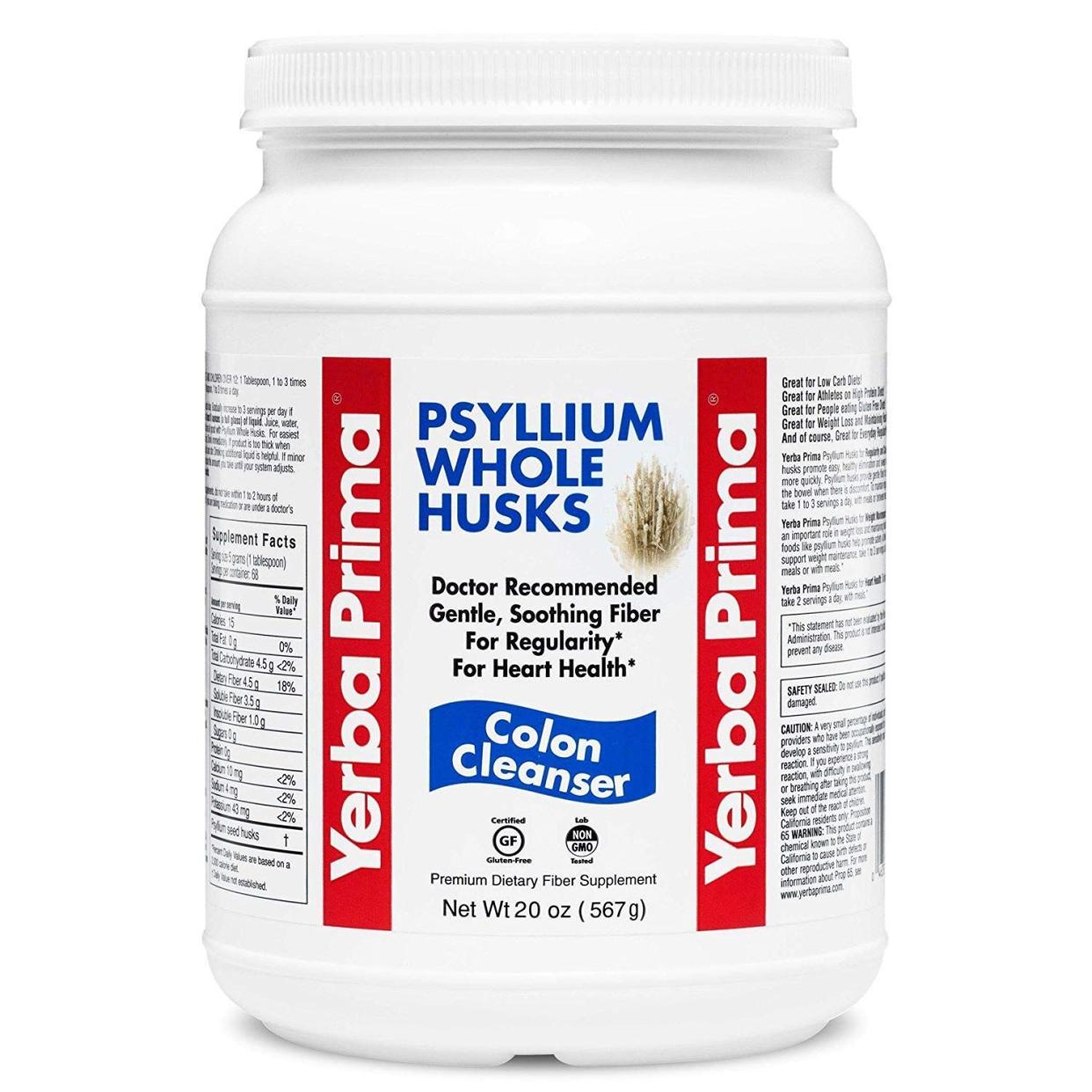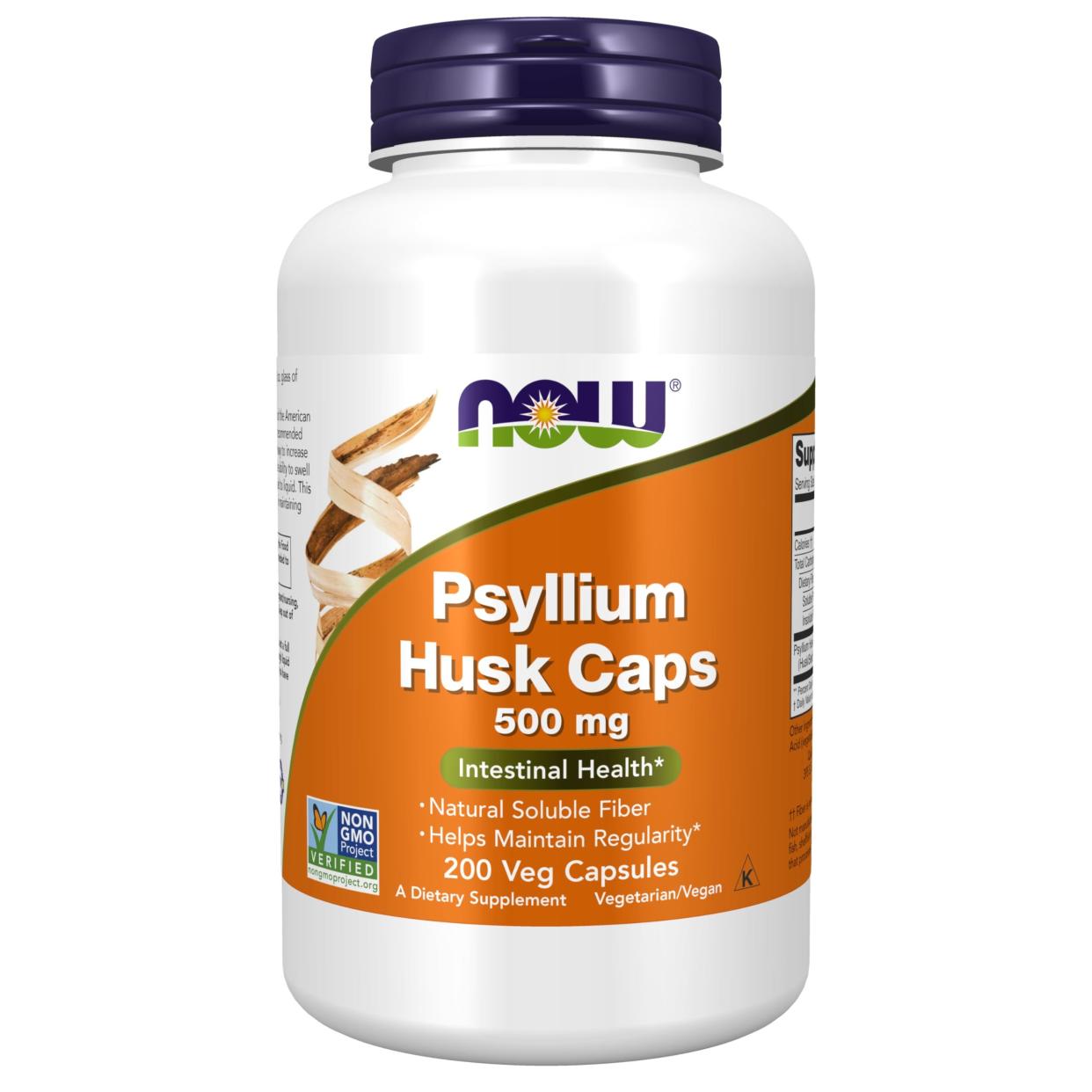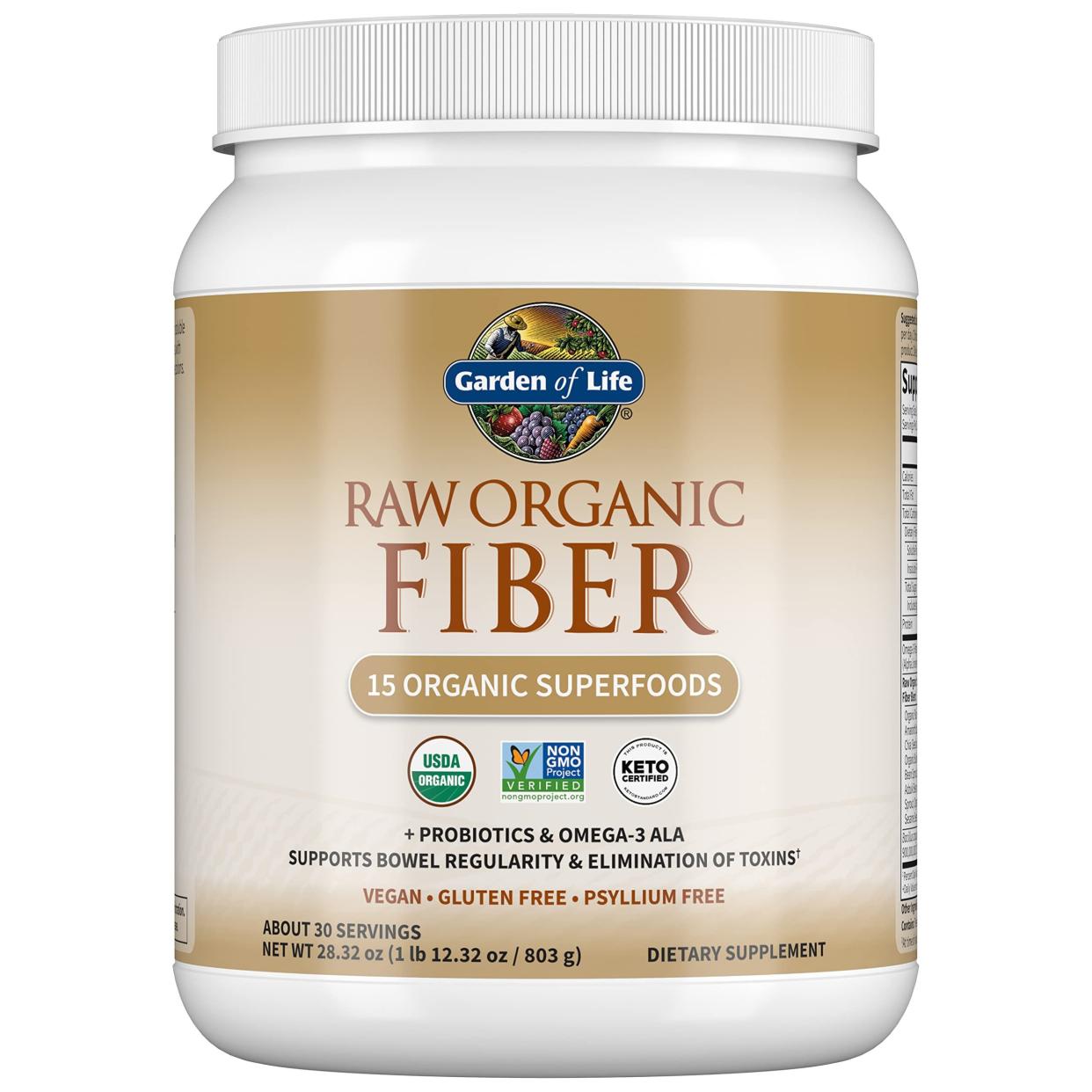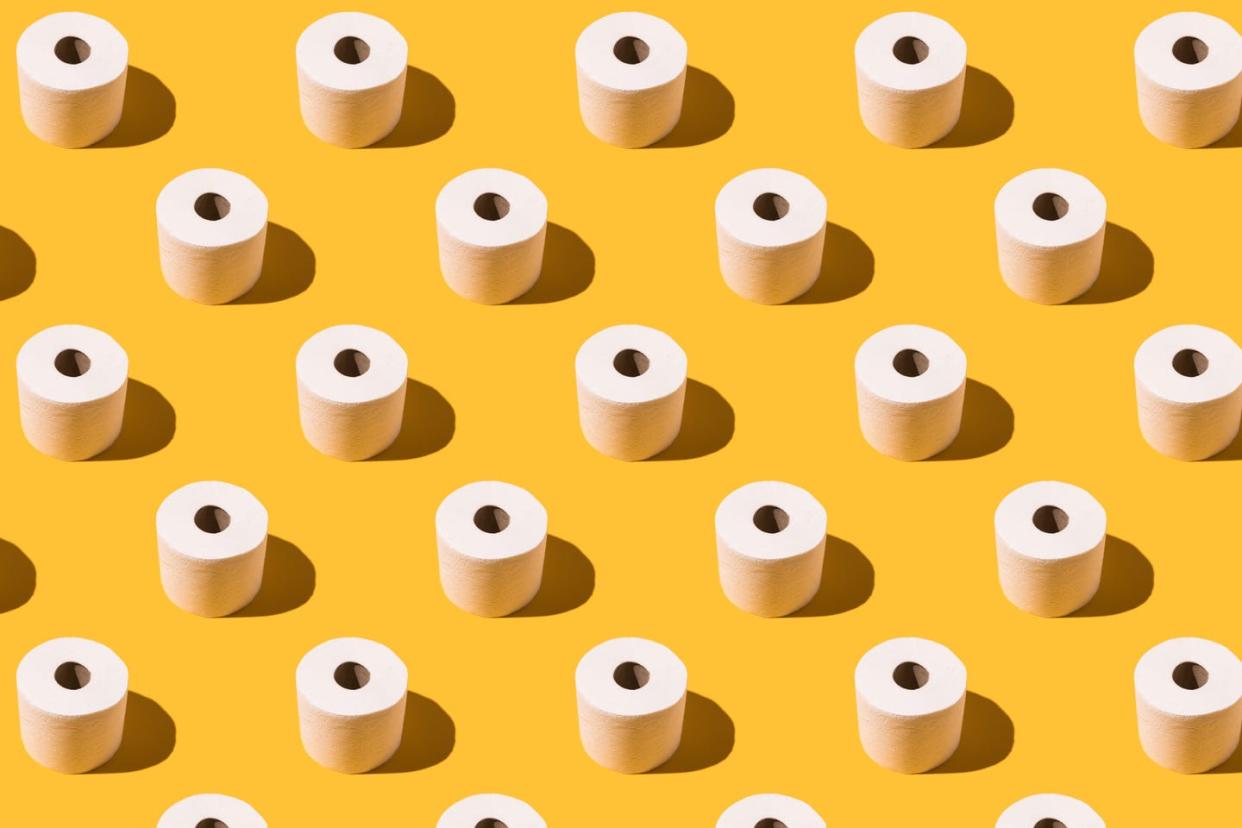Doctors Say These 12 Home Remedies for Constipation Actually Work
"Hearst Magazines and Yahoo may earn commission or revenue on some items through these links."
You sit on the toilet thinking positive thoughts of landslides and waterfalls, but no matter how hard you try, you can not get that poop to come out. Or, when it finally does emerge, it looks like a couple of sad little chocolate M&Ms floating around the bowl.
Hey, it happens. (Or, to be more graphic, the lack of something that rhymes with it happens.) Constipation, which involves changes in the frequency and consistency of your bowel movements, can especially be a problem if you’ve been traveling, says Supriya Rao, MD, a clinical assistant professor at Tufts University School of Medicine and managing partner of Integrated Gastroenterology Consultants in Boston. “You're off your regular schedule, there have been changes in circadian rhythm and you’re eating different types of foods,” she says. Plus, you may have been a little skittish about using a bathroom on the plane or in the hotel, because who knows how many butts have perched on that same seat?
“Constipation is partly behavioral, and it’s partly your environment,” adds Neha Mathur, MD, a gastroenterologist at Houston Methodist, who says that dehydration, diet and lack of exercise can also contribute. Certain medications can also affect your bowel movements, including some antidepressants, iron supplements, opioids (something to be keep in mind after you’ve had surgery) and GLP-1 medications such as Ozempic. (These factors can also sometimes lead to more liquidy stools.)
Chronic constipation may be a sign of irritable bowel syndrome (IBS) or inflammatory bowel disease (IBD); a gastroenterologist can recommend both lifestyle changes and medications to help. But for occasional bouts of acute constipation, you can try some home remedies to make yourself go.
Home Remedies for Constipation
1. Pop a squat
You may have heard friends raving about the Squatty Potty — a footstool that fits around the base of your toilet so you can lift your knees up while bearing down — and both experts say it really works! “The Western-style toilet is not great ergonomically,” says Dr. Mathur, who points out in many other countries, people squat on toilets low to the ground to poop. The elevated toilet seat we Americans are used to doesn’t allow the proper anal-rectal angle, she says. Any foot stool that allows you to bend your knees with your bottom at an angle will align your body to make it easier to poop.
2. Drink more water
Of course it makes sense, but sometimes you just go through an entire day forgetting to refill your water bottle. Low fluid intake is one of the most common causes of acute constipation, according to the American College of Gastroenterology. The more hydrated you are, the looser your stools will become, making them easier to slide down the chute.
3. Have a cup of coffee
If you’re a regular morning coffee drinker, you may notice a pattern that after you down your latte, you need to hit the bathroom. That’s because caffeine increases motility in the gut, says Dr. Mathur. If you can’t tolerate coffee because of acid reflux or you just don’t like the taste, you can try a caffeinated tea.
4. Snack on kiwis
These cute and tangy fruit taste a whole lot better than a pill or powder, and they may be enough to do the trick, “Studies have shown that two kiwis a day work just as well as over-the-counter laxatives for helping some patients go to the bathroom,” says Dr. Rao. She recommends eating the fuzzy fruit skin and all, for maximum fiber content.
5. Eat a high-fiber diet
Though kiwis are a superfood when it comes to fiber, most fruits and veggies will provide plenty to keep your pipes from getting clogged. “In addition to eating more greens and more vegetables, you can add bran, nuts, and cereal and breads with high fiber,” says Dr. Mathur, who recommends consuming 25 to 30 grams of fiber a day. Fiber makes your stool both bigger and softer, which makes it easier to pass. “Make sure you’re drinking enough water with your fiber,” adds Dr. Rao. Other high fiber foods include popcorn, beans, lentils, pumpkin, sweet potatoes, broccoli, raspberries, apples and pears.
6. Take a fiber supplement
If you're not able to get a sufficient amount of fiber in your diet — or just need an extra boost — taking a supplement such as psyllium husk (in brands such as Metamucil) or methylcellulose (such as Citrucel) can help. Many of these formulations are dissolved in water, which is important, since that water is then drawn into the colon to soften the stool and propel it forward, Dr. Mathur explains. Start with a small dose, and increase until your bowel movements become regular, advise the American College of Gastroenterology.
Psyllium Whole Husks Fiber Supplement

Psyllium Whole Husks Fiber Supplement
amazon.com
$27.99
Psyllium Husk Caps

Psyllium Husk Caps
amazon.com
$10.40
Fiber Supplement

Fiber Supplement
amazon.com
$27.29
7. Move more
You may notice that if you take a break from your exercise routine, you get more backed up. “A more sedentary state leads to more constipation,” says Dr. Mathur, who adds that exercises that engage your core muscles, such as yoga, can help strengthen your pelvic floor, which can in turn help you create enough abdominal pressure to push out your stool. Studies have shown that exercise in general can be helpful in easing constipation.
8. Eat fermented foods
Dr. Rao recommends adding fermented foods such as kimchi, miso and kombucha to your diet. Some studies have shown that the probiotic benefits of these foods can help with gastrointestinal issues including constipation.
9. Cut back on dairy
Just as some foods can clear you out, others can block you up. “Different people respond to dairy in different ways,” says Dr. Rao. “For some in can cause diarrhea, and for others it can be very constipating.” You can try switching to plant-based milk and ice cream for a few to see it makes a difference.
10. Walk after meals
After you finish that meal full of high-fiber foods, go outside and get some steps in. “I tell patients to take at least a 15 to 20 minute walk after their meals to help them digest,” says Dr. Rao. Studies have confirmed that by stimulating the stomach and intestines, walking can help ease the symptoms of constipation.
11. Take an OTC laxative
When diet and exercise aren't quite enough to make you go, you can step it up with over-the-counter laxatives. There are two basic kinds, stimulants and osmotic: Stimulants contain substances such as senna (in brands including Senokot) and bisocodyl (in brands including Dulcolax) that stimulate the walls of the large intestine, causing them to contract. “My patients seem to really like the stimulants, because it really makes them feel the urge to go,” says Dr. Rao. “Osmotics such as Miralax, pull water from the surrounding tissues into the gut to help you go,” she adds. These should only be taken for short periods of time; check in with your doctor to make sure they are right for you.
12. Try a magnesium supplement
Magnesium supplements have many uses, including insomnia, restless leg syndrome and cardiovascular disease, but they are particularly useful for constipation, says Dr. Mathur, who recommends taking between 200 and 400mg per day. “If you're a patient who has one to two bowel movements a week, magnesium may not be enough to fix everything,” she says. “But if you're mild and need a little softening, then magnesium is very safe.”

FAQ
What are the signs of constipation?
To put it bluntly, constipation is when you’re having trouble pooping. That could mean you’ve gone a day or two without having a bowel movement, the consistency of your poop has changed (think small rabbit pellets rather than runny diarrhea), you’re straining hard with no satisfactory results, or you go but don’t feel like you’ve successfully gotten everything out. “Some people say, ‘I'm having small bowel movements, but I'm going multiple times a day,’ and that can still be under the umbrella of constipation because of the change in frequency and the consistency,” says Dr. Mathur. “It's really just unsatisfactory defecation with changes in frequency and stools that are difficult to pass.”
How do you get rid of constipation ASAP?
Many of the cures for constipation involve changing your diet, exercising more and drinking plenty of water, and these can take some time to effect change. But if you need to go right now, the fastest methods will be using a squatting stool and taking over-the-counter laxatives.
Should you use laxatives?
Yes, if other lifestyle changes aren’t doing the job, it is safe to take laxatives, says Dr. Mathur. She adds that stimulant laxatives should only be used for a limited period of time, as a “rescue” med (taken in the moment for an acute case rather than as a long-term treatment). And if you find yourself reaching for them more than once a week or so, check in with your doctor.
When should you see a doctor?
If you have three or fewer bowel movements in a week for four to six weeks (and this is a change from your normal schedule), you should consult a doctor, says Dr. Rao. Not only can they help you come up with a plan for better bowel habits, but they can also recommend prescription meds if necessary. And, most importantly, they can evaluate whether your constipation may be a sign of a more serious condition, such as pelvic floor dysfunction, thyroid disease or an inflammatory bowel condition. They may also recommend a colonoscopy to rule out colon cancer or other bowel obstructions, says Dr Mathur. “That’s less likely if you’re 18 than if you’re 70, but if there are ongoing symptoms and you're reaching for more and more over-the-counter therapies, then definitely seek medical counseling to make sure that nothing more serious is going on,” she says.
You Might Also Like
